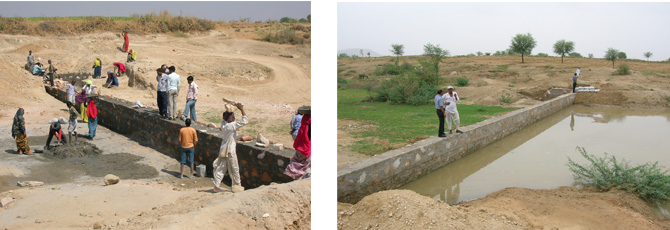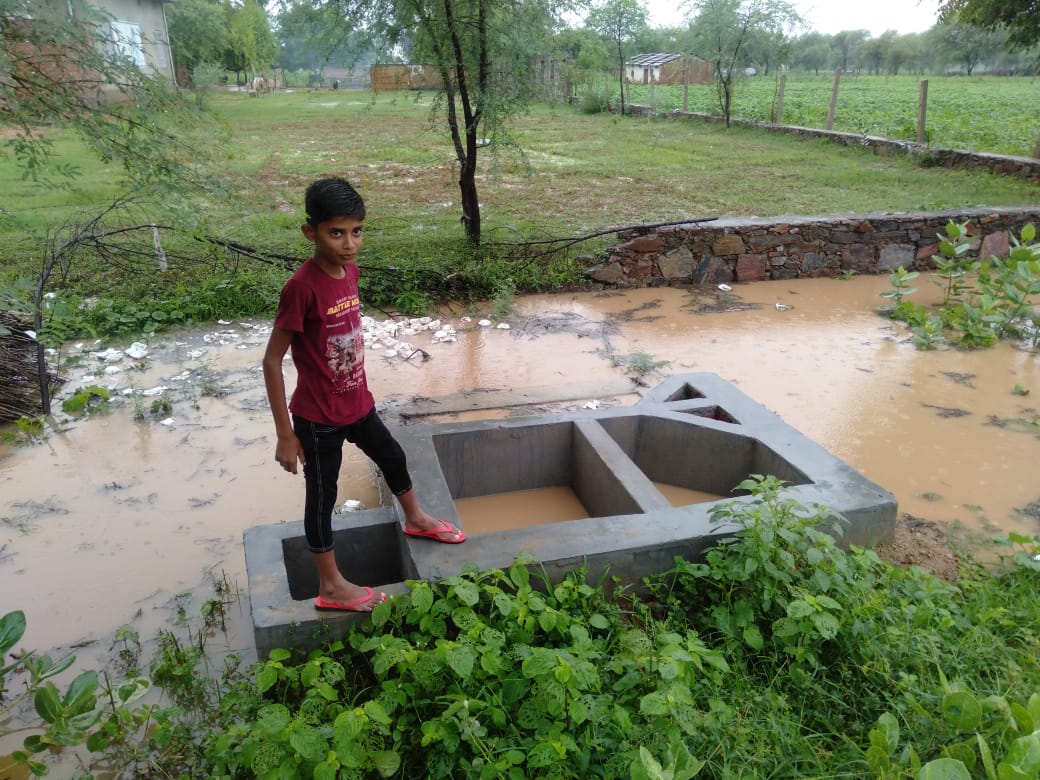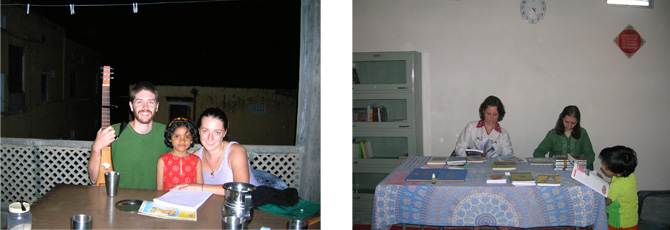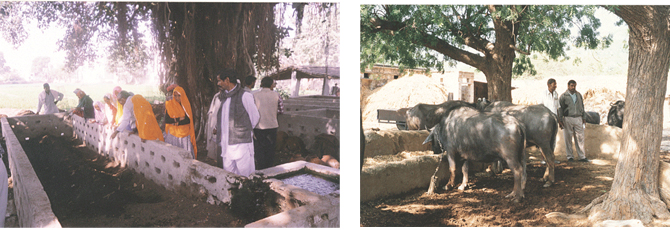Activities
The Kumarappa Institute of Gram Swaraj operates in two complementary spheres. Our primary reason for being is to improve the lives of the marginalized and downtrodden in rural Rajasthan. To this end, we decided to carry out research into the problems they face, as it is our belief that impartial knowledge is crucial to progress. On the basis of our studies, we work in collaboration with other like-minded groups from the governmental and non-governmental and foreign and domestic spheres to implement the measures we deem are most conducive to sustainable development. To find out more about them, click on the links below.


According to 2001 census more than 12,62,570 children were working in the age group 5-14 years in Rajasthan. Brick industries are a hazardous industry because it produces lot of dust in the work place. The children who work in brick industries are the children of migrant laborers; they accompany their parents to the brick chambers and help their parents in their work. In the survival struggle parents do not bother about children’s education.
Present Status: During the session 2021-2022 ten schools (informal learning centers) covering 13 brick kilns in Kotkhawda/Chaksu area and 5 schools covering 19 brick Kilns in Renwal area of Jaipur district (Rajasthan) were opened. The location of brick kilns where the schools were opened are as follows:
One area of most immediate need for a majority of rural villages is access to water for irrigation and drinking. Approximately 70% of Rajasthan’s work force is engaged in agriculture and allied activities and the vast majority of these farmers depend on groundwater for irrigation. Unfortunately, 80% of Rajasthan exists in the critical category for water over-exploitation. Groundwater levels in Rajasthan have been declining by one foot each year which indicates that current rates of water extraction are not sustainable. This spells disaster for Rajasthan’s farmers and their families who will not have the required irrigation due to dry wells and low water tables.


The students have to stay at the Institute’s campus and take part in its morning and evening activities. They have to take part in morning and evening prayer, meditation, cleaning the campus and learn how to spin cloth on spinning wheel i.e. “Charkha”, reading Gandhian literature and understanding it by going to the fields of KIGS and having an interaction with the villagers about the activities being taken up there, interaction with Gandhian thinkers and workers. They would be free to do any other work during daytime. The Institute will provide facility of boarding and lodging alongwith kitchen facility (such as gas stove, utensils, etc. food not included, the students have to cook their own food).
Bhagirath Gujar is Dotana’s village leader. He explains that, in addition to the biogas plants there, each family has been equipped with a smokeless chullah, and 8 families have taken up horticulture, which is in each case supported by drip irrigation provided by the Institute. Originally, there was no interest in the biogas initiative, but with persistence of KIGS, Kamala Devi and Moti Devi started to use smokeless chullahs and horticulture and realized its benefits. When the plants come to maturity and begin yielding fruit, and income, the typical pattern will emerge, wherein other families will realize the soundness of the new practices, and also resort to these practices for their own development.





